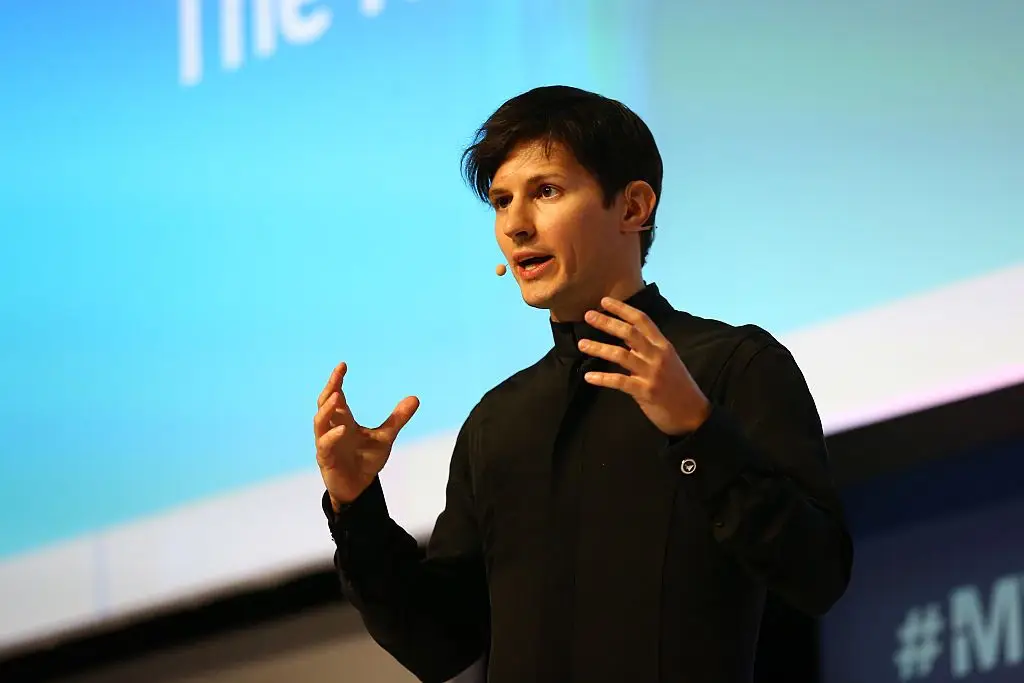Pavel Durov, the founder and CEO of Telegram, was arrested at 8pm (local time) on Saturday at Le Bourget airport, outside Paris.
The technology entrepreneur, who holds Russian and French citizenship, had just stepped off his private plane from Azerbaijan and was intercepted on the basis of an arrest warrant issued by the French judiciary.
Who is Pavel Durov?
Born in St. Petersburg, Russia in 1984, this programmer was often called the “Russian Mark Zuckerberg” because of the business prowess he revealed.
He left Russia in 2014, after refusing to comply with authorities' demands to close opposition-linked communities on the social network VKontakte (later VK), which he founded, became Russia's largest social network and which he would later sell.
Telegram was launched in 2013 and was loved by Russians. When Moscow authorities blocked it in 2018, program The country has seen street protests using posters elevating Durov's image to a religious icon.
In April, in an interview with conservative American broadcaster Tucker Carlson, the French-Russian described the odyssey of setting up his company abroad, which included stints in Berlin, London, Singapore and San Francisco.
“I would rather be free than take orders from someone,” he said at the time, stressing his commitment to freedom of expression and privacy.
In 2017, he settled in Dubai, United Arab Emirates. In August 2021, he obtained French citizenship.
Protest in St. Petersburg, 2018, against the blocking of Telegram
Olga Maltseva/AFP/Getty Images
What are you accused of?
With nearly a billion users, Telegram is a free messaging service similar to WhasApp. However, Durov’s platform ensures end-to-end encryption of messages exchanged. This ensures its popularity due to the privacy it provides, but it also raises controversy.
According to the French press, Durov's arrest is due to the inadequacy of the content moderation policy, which encourages criminal activities in the application and makes him an accomplice in drug trafficking, fraud or child sexual abuse.
“He has allowed countless wrongdoings and crimes to occur through his platform, and has done nothing to mitigate or cooperate with them.” [com a aplicação da lei]“An unnamed source close to the case told French channel TF1.
Durov's arrest was ostentatious. The operation involved officers from the Air Transport and Cyber Police, members of the National Anti-Fraud Office and a team from the Border Police.
Albert Jia/Reuters
international
Read also
What does Elon Musk say about the case?
Elon Musk, owner of social network X (formerly Twitter), was one of the most vocal Franco-Russian supporters. He joked: “It’s 2030 in Europe, and someone is being executed for liking a meme.” mailDenouncing government interference in the Internet.
In several posts, the American businessman repeated an idea expressed in previous interventions: “Moderation is a propaganda word for censorship.”
And when Musk attacked Instagram and WhatsApp on social media: “Because they have already caved in to censorship pressure. Instagram has a huge problem with child exploitation, but there is no [ordem de] Jail for Zach because he censors free speech and gives governments secret access to user data.
Why is freedom of expression being discussed?
Both at the level of Internet users and at the level of political forces, Durov’s arrest raises questions about the balance between freedom of expression, which is guaranteed by social networks, and the need to moderate content. connectedto combat extremism and crime.
The fate of the French-Russian at the hands of French justice could have implications for social media policies and messaging platforms in different jurisdictions.
Immediately, the issue is also being used in political battles, especially in the context of the upcoming presidential elections in the United States.
“Pavel Durov left Russia when the government tried to take control of his social media company, Telegram. But in the end, it wasn’t Putin who arrested him because he allowed the public to exercise freedom of expression,” conservative American broadcaster and commentator Tucker Carlson wrote on social network X. “It was a Western country, an ally of the Biden administration and an enthusiastic NATO member, that arrested him.”

“Wannabe internet buff. Future teen idol. Hardcore zombie guru. Gamer. Avid creator. Entrepreneur. Bacon ninja.”

